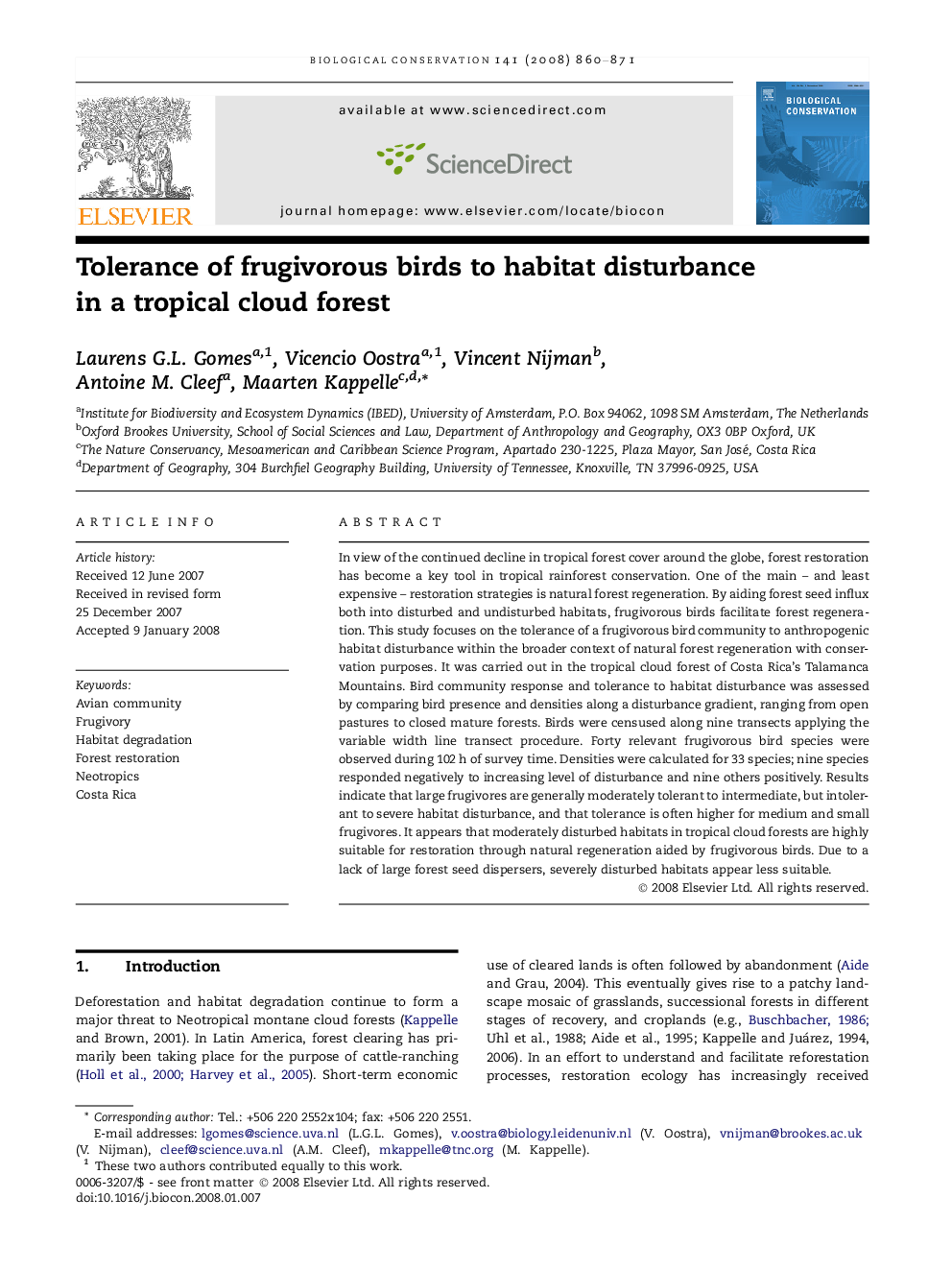| Article ID | Journal | Published Year | Pages | File Type |
|---|---|---|---|---|
| 4386744 | Biological Conservation | 2008 | 12 Pages |
Abstract
In view of the continued decline in tropical forest cover around the globe, forest restoration has become a key tool in tropical rainforest conservation. One of the main - and least expensive - restoration strategies is natural forest regeneration. By aiding forest seed influx both into disturbed and undisturbed habitats, frugivorous birds facilitate forest regeneration. This study focuses on the tolerance of a frugivorous bird community to anthropogenic habitat disturbance within the broader context of natural forest regeneration with conservation purposes. It was carried out in the tropical cloud forest of Costa Rica's Talamanca Mountains. Bird community response and tolerance to habitat disturbance was assessed by comparing bird presence and densities along a disturbance gradient, ranging from open pastures to closed mature forests. Birds were censused along nine transects applying the variable width line transect procedure. Forty relevant frugivorous bird species were observed during 102Â h of survey time. Densities were calculated for 33 species; nine species responded negatively to increasing level of disturbance and nine others positively. Results indicate that large frugivores are generally moderately tolerant to intermediate, but intolerant to severe habitat disturbance, and that tolerance is often higher for medium and small frugivores. It appears that moderately disturbed habitats in tropical cloud forests are highly suitable for restoration through natural regeneration aided by frugivorous birds. Due to a lack of large forest seed dispersers, severely disturbed habitats appear less suitable.
Related Topics
Life Sciences
Agricultural and Biological Sciences
Ecology, Evolution, Behavior and Systematics
Authors
Laurens G.L. Gomes, Vicencio Oostra, Vincent Nijman, Antoine M. Cleef, Maarten Kappelle,
